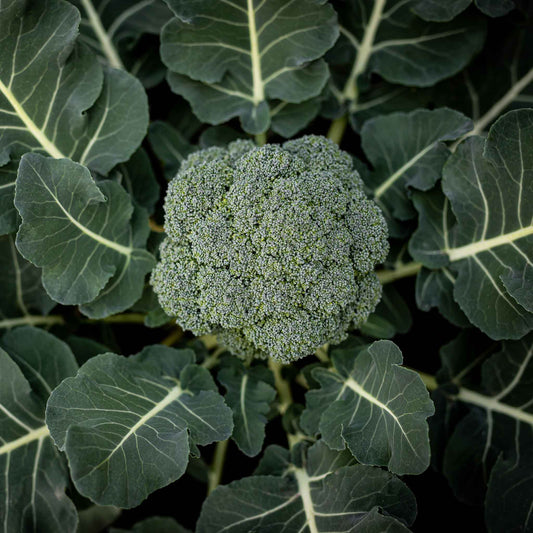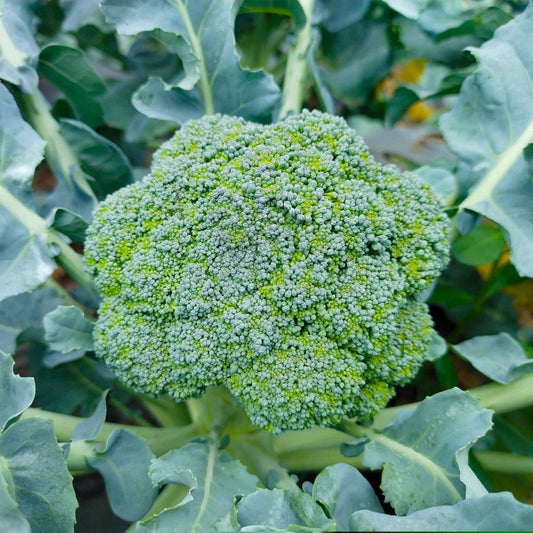-
main-collection-product-grid

Broccoli Seeds (Organic) - Calabrese
Slow bolting broccoli that produces over a long seasonSaleBroccoli Seeds (Organic) - Calabrese
Slow bolting broccoli that produces over a long seasonRegular price As Low As $6.99Regular priceUnit price per$57.99Sale price As Low As $6.99Sale -
main-collection-product-grid

Broccoli Seeds (Organic) - Waltham 29
Big side shoots and high yieldsSaleBroccoli Seeds (Organic) - Waltham 29
Big side shoots and high yieldsRegular price As Low As $6.99Regular priceUnit price per$21.99Sale price As Low As $6.99Sale
What we love about planting organic broccoli
- Thrives in bright, sunny growing areas
- Fast growing, cool season, annual vegetable
- Great source of fiber and protein
- Can improve bone health, boost the immune health, and reduce inflammation
The best organic broccoli is homegrown
Organic broccoli is a robust cool-season vegetable that can sprout in temperatures as low as 40°F and is a strong source of vitamins A and K, as well as cholesterol-lowering properties. Plant your organic broccoli seeds two to three weeks before the final spring frost in cooler zones. Seeds can be planted in the fall in warmer climates and harvested 50 to 200 days later, depending on the cultivar and planting zone. Broccoli grows best in full light with moist but well-drained soil.
How to plant organic broccoli seeds
Seeds should be planted 1/2 inch deep and 12 to 24 inches apart. Keep seedlings well watered, but after the broccoli has matured, avoid getting the broccoli heads wet while watering. When the broccoli head's buds are firm, it's time to harvest. Smaller shoots will develop from where you've cut the stem of the main head on a slant. Keep in mind that this quick-growing veggie grows to be between 24 and 35 inches tall. If the buds are not harvested, they develop silique fruits, or dry capsules, which are yellow flowers with four petals. After harvesting, store your organic broccoli in the crisper drawer of your refrigerator for up to one week.
Broccoli is said to have originated in the Mediterranean and has since been used in a variety of dishes. When broccoli was originally brought in England in the mid-18th century, it was known as "Italian asparagus," as it had been considered a particularly prized food by the Italians since the Roman Empire. Southern Italian immigrants introduced it to the United States, although it did not become wildly popular until the 1920s. It's frequently prepared and served in salads, soups, and side dishes, or boiled, steamed, and stir-fried. Alternatively, broccoli is considered a very popular raw vegetable. Remember that all portions of the organic broccoli plant are edible, no matter how you prepare this tasty, green vegetable. Broccoli crowns, stems, and leaves can all be eaten. The seeds are the sole non-edible portion of this plant, and they can be toxic if ingested.
The top companion plants for organic broccoli
Beets, cucumbers, lettuce, radishes, spinach, and swiss chard are just some of organic broccoli's favorite companion plants.
For more information about planting, growing, and caring for organic broccoli seeds, see the Broccoli Seeds Planting Guide.

